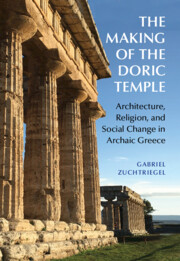Preface
Published online by Cambridge University Press: 22 July 2023
Summary
At the beginning of the sixth century BC, the Aphaia sanctuary on the island of Aegina underwent a radical transformation. What until then had been a local open-air cult place in the woody mountains of the western part of the island, where a female deity had been worshipped as early as the second millennium BC, became an architecturally structured sanctuary that conformed to the novel Doric architectural order. At the same time, a cult image made of ivory was set up in the newly built temple. The goddess, who had previously “shown herself” in the open grove that was associated with her presence, was now represented through a man-made image. In addition, a wall was built around the temple that separated the sacred precinct from the “profane” land outside the sanctuary. Around the same time, the island of Aegina became one of the most important trade centers in the Greek world. The book argues that the transformation of the Aphaia sanctuary on Aegina is typical of the larger area in which the Doric order emerged. This transformation was characterized by economic growth, urbanization, land reclamation, and colonization and prompted the Greeks to rethink their relationship with the gods who inhabited the land.
Keywords
Information
- Type
- Chapter
- Information
- The Making of the Doric TempleArchitecture, Religion, and Social Change in Archaic Greece, pp. xi - xviPublisher: Cambridge University PressPrint publication year: 2023
